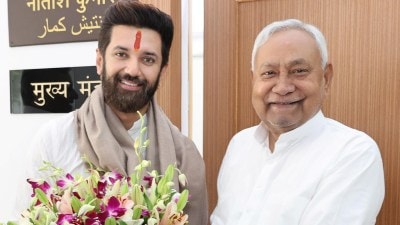Taylor Swift fan club: How Swifties drive culture and commerce
Taylor Swift has something most artists spend their whole lives trying to build: an emotionally literate fandom that knows what to do when the moment arrives.
 Taylor Swift's fans or Swifties drive both culture and commerce (Photo credits: Instagram/Taylor Swift)
Taylor Swift's fans or Swifties drive both culture and commerce (Photo credits: Instagram/Taylor Swift)I found out Taylor Swift got engaged the way most people did: by opening Instagram and wondering why every third post looked like it was shot in the same garden.
The caption said, “Your English teacher and your gym teacher are getting married.” That was enough. By the time I saw it, it had already crossed 14 million likes. By the end of the day, it had over 30 million likes, a million reposts in six hours, and triggered reactions across Google, Threads, TikTok, podcast episodes, newsrooms, stock prices, and even LinkedIn!
Now, if you were to see: There wasn’t much to it. A photo in a garden. A caption that sounded like an inside joke. No exclusive rollout. No editorial tie-in. There was no hype engine behind it because there didn’t need to be one. Pop singer and the anointed cultural “mother” of many, Taylor Swift, was getting married to one of America’s biggest football stars, Travis Kelce.
But the engagement post isn’t the story alone. It’s everything that happened afterwards. Swift has something most artists, brands, and franchises spend their whole lives trying to build: an emotionally literate fandom that knows what to do when the moment arrives.
View this post on Instagram
To be fair, the reactions weren’t surprising. But the efficiency was. The Ralph Lauren dress? Gone in hours. American Eagle’s stock bumped 4.6 per cent after a Travis-themed capsule dropped. A White House reporter forgot she was live on air and just said, “Oh my god” into the void. That clip now has millions of views. Engagement ring searches spiked. Streaming platforms saw an unrelated lift. A fan who bet on the proposal happening on a crypto-based prediction platform walked away with a small fortune of $50,000. And Google quietly added a confetti animation to her name.
CBS News reporter @olivialarinaldi discovers Taylor Swift is engaged to Travis Kelce moments before going on live TV. “I feel like Paul Revere right now.” https://t.co/SsAqe2q4US pic.twitter.com/0fS6lCqEIR
— CBS News (@CBSNews) August 26, 2025
Here’s what I took from all this.
Swift’s fandom doesn’t behave like a social media audience. They behave like a cultural department.
They monitor, archive, escalate, and distribute. They know which caption tone means what. They know which merch item will sell out. They can decode lighting, outfits, filters, and turn them into context. Think of Swift’s recent new-album announcement, and the flood of fan theories that followed, generating a global buzz even before the drop.
They don’t wait for a PR push; they are the push.
This was a shared moment. And the difference is important.
Most celebrity content now tries to look intimate but feels produced. This actually was intimate, and still landed like an international broadcast. It had the power of a Super Bowl ad with the tone of a friend’s story. You build that by being consistent, specific, and trusted for years.
Fandom is infrastructure now.
It’s not a group of people waiting to consume something. It’s a distributed network of hyper-engaged curators, editors, critics, moodboard-makers, defenders, and even economists. The post passed through a system already wired for response.
Every layer of Internet culture, from gossip to finance, knew where this belonged.
We overvalue performance and undervalue tone.
The funny part is that there wasn’t a multi-slide rollout. No professional photo credit. No overt messaging. Just a caption people could screenshot, reference, quote, parody, and meme. You know how many artists with bigger production budgets can’t land that? Too many.
Because somewhere along the way, most of us forgot how far clarity and timing can go.
I am not a Swiftie. Closest I have come is hearing Shake It Off on loop at one of our early Comic Con shows, blaring from a booth that had no business playing music that loud, that early. I remember wondering why it was always that song. Then I noticed: no one complained.
That’s kind of what this announcement felt like.
One post. A caption that sounded like a joke. And still, the Internet gave it top billing.
I have been in this space long enough to know when something lands, even if it’s not meant for me. This landed — cleanly, instantly. And without needing to say much at all. And only the internet gods know what will happen when the actual wedding happens!
Jatin Varma is the founder of Comic Con India






- 01
- 02
- 03
- 04
- 05

























